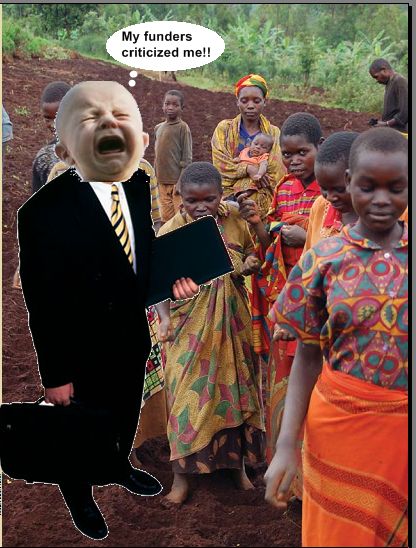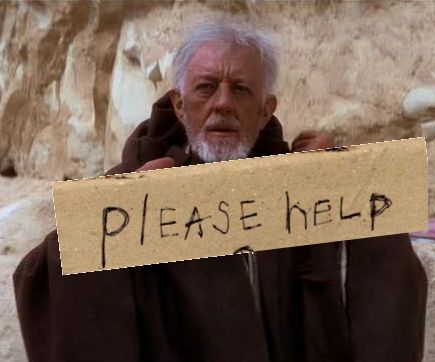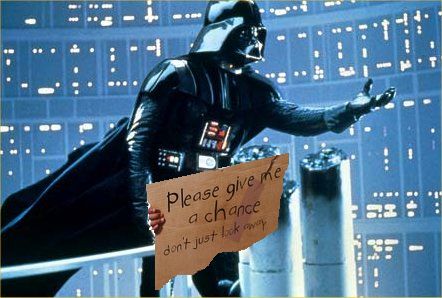 We need your help. We’re about to contact all the charities we’ve identified as being potential Clear Fund grant recipients. We’ve mostly found these organizations through a systematic search through a gigantic stack of Form 990s (let me know if you want more details – they’re fantastically boring), and have found a few others in one-off ways. We don’t want to miss anyone good. So If you know of a charity that would be great to donate to, now is the time to plug them.
We need your help. We’re about to contact all the charities we’ve identified as being potential Clear Fund grant recipients. We’ve mostly found these organizations through a systematic search through a gigantic stack of Form 990s (let me know if you want more details – they’re fantastically boring), and have found a few others in one-off ways. We don’t want to miss anyone good. So If you know of a charity that would be great to donate to, now is the time to plug them.
What we’re looking for: broadly, we want organizations with proven, effective, scalable ways of helping people. That means they reliably can turn more money into more lives affected. Innovative and totally untested experiments, research organizations, etc. certainly have value to society – but that isn’t what we’re looking for. Ditto for small organizations where we can’t predict what would result from an influx of funding. Ditto for political advocacy. We want to buy better lives for others, as cheaply and confidently as we can.
More narrowly, for our first year, we are focusing on New York City and Africa. Global or national organizations are fine, if their scope includes these areas – we just don’t want to evaluate organizations who don’t do any work in the areas we’re going to be able to see in person. For New York City, we are looking for organizations that help children get better opportunities to succeed in life (whether through education, child care, or addressing basic needs) and that help adults get out of poverty for good (supportive housing, job training, etc.) For Africa, we are focusing more on reducing suffering: fighting disease, malnutrition, extreme poverty, etc.
As our regular readers know, we couldn’t possibly care less how much a charity spends on overhead or what watchdogs including Charity Navigator and the Better Business Bureau think of them. We want organizations that are great at helping people, no matter how good they are at accounting.
Finally, we’re looking for organizations that want to share what they do. Charities that are afraid to tell the unfiltered truth about their strategies, achievements and shortcomings (and let’s face it, there are always shortcomings) simply won’t get anywhere with us. I don’t care if Bill Gates, Bill Clinton, Britney Spears and Mona Lisa have all given the thumbs up – we’re not spending money without an idea of what it’s going to buy.
I know I’ve been very vague and broad, and that’s because the goal is vague and broad: help people. We will ultimately divide charities up by category so they can be more reasonably compared to each other, and we will firm up our categories (already drafted) when we know how many interested charities are in each category. For now, we’re trying to cast the net wide. So hit me. Tell me who’s good.

 I think that funders should be blunt, honest, and public in their feedback to nonprofits, including those who get rejected. The benefits in terms of allowing public dialogue and giving nonprofits the feedback they need to improve are obvious – yet every foundation I’ve called agrees that publicly criticizing rejectees is unacceptable. Why? The answer, according to many – most recently
I think that funders should be blunt, honest, and public in their feedback to nonprofits, including those who get rejected. The benefits in terms of allowing public dialogue and giving nonprofits the feedback they need to improve are obvious – yet every foundation I’ve called agrees that publicly criticizing rejectees is unacceptable. Why? The answer, according to many – most recently  If you find yourself unable to do this, I only have one explanation: that helping people isn’t the core of your motivation. That you care more about your short-term emotions, day to day, than about the good work you’re trying to do. That you’ve chosen nonprofit over for-profit not because you want to improve the world, but because it’s a nice, cuddly atmosphere where you will never be challenged. If this is you, I take back everything nice I ever might have said about you, your intentions, and your project. It would be one thing if you were off volunteering on your own, but the money you ask for could be going to someone else with a thicker skin, and more value on learning than on their own feelings, who can do a better job than you at helping people. I want you out of your job and other people’s way.
If you find yourself unable to do this, I only have one explanation: that helping people isn’t the core of your motivation. That you care more about your short-term emotions, day to day, than about the good work you’re trying to do. That you’ve chosen nonprofit over for-profit not because you want to improve the world, but because it’s a nice, cuddly atmosphere where you will never be challenged. If this is you, I take back everything nice I ever might have said about you, your intentions, and your project. It would be one thing if you were off volunteering on your own, but the money you ask for could be going to someone else with a thicker skin, and more value on learning than on their own feelings, who can do a better job than you at helping people. I want you out of your job and other people’s way. More broadly: a corporation is not a person. A person should contribute to society, spend time with his% family, take care of himself% first but also give to charity, etc. (You haven’t heard that you can now gender-neutralize any word by sticking % on the end? Well, I just invented it. Pass it on.) A corporation is a legal entity whose sole purpose is to provide particular goods or services. A person’s life should be well-balanced; a corporation exists to do one thing well.
More broadly: a corporation is not a person. A person should contribute to society, spend time with his% family, take care of himself% first but also give to charity, etc. (You haven’t heard that you can now gender-neutralize any word by sticking % on the end? Well, I just invented it. Pass it on.) A corporation is a legal entity whose sole purpose is to provide particular goods or services. A person’s life should be well-balanced; a corporation exists to do one thing well. Charities oppose each other in more subtle ways as well. Going through all these 990s, I’ve really become aware of the huge presence among charities of political advocacy. It’s natural that charities find themselves wanting to address the “root causes” of the problems they address; but as soon as they do this, it’s no longer safe to say that their funds are “going to a good cause” without at least thinking twice. After all, if the legal changes they want to make were completely noncontroversial, you’d think they’d already be made. If you go to a concert to “fight global warming” or “save the environment,” your dollars aren’t going to feed cuddly bunnies; chances are, they’re going to lobbyists, advocates, even demonstrators, with the aim of putting laws in place that might be pro-environment or anti-business, depending on your point of view. And even if you’re on the pro-environment side, it’s worth considering that one of the biggest struggles in politics is not just for position, but for attention and prioritization. When it comes down to it,
Charities oppose each other in more subtle ways as well. Going through all these 990s, I’ve really become aware of the huge presence among charities of political advocacy. It’s natural that charities find themselves wanting to address the “root causes” of the problems they address; but as soon as they do this, it’s no longer safe to say that their funds are “going to a good cause” without at least thinking twice. After all, if the legal changes they want to make were completely noncontroversial, you’d think they’d already be made. If you go to a concert to “fight global warming” or “save the environment,” your dollars aren’t going to feed cuddly bunnies; chances are, they’re going to lobbyists, advocates, even demonstrators, with the aim of putting laws in place that might be pro-environment or anti-business, depending on your point of view. And even if you’re on the pro-environment side, it’s worth considering that one of the biggest struggles in politics is not just for position, but for attention and prioritization. When it comes down to it,  Tooling around through my recent Google alerts (“Charity”), I see a mind-boggling silence on these questions. Indeed, I see Barry Bonds being
Tooling around through my recent Google alerts (“Charity”), I see a mind-boggling silence on these questions. Indeed, I see Barry Bonds being  A commonplace among fundraisers is that
A commonplace among fundraisers is that